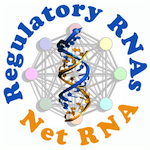Dr André VERDEL, Institut pour l'Avancée des Biosciences, Université Grenoble Alpes, France, invité par C. Bousquet-Antonelli
Early biophysical and structural studies of the YTH domain’s ability to bind m6A led to the widespread assumption that this epitranscriptomic interaction is autonomous—that is, the YTH domain alone is sufficient for m6A recognition, and that its binding activity is not subject to regulation.
However, I will present two recent studies from our group that provide strong evidence that YTH–RNA interactions are, in fact, regulated in yeast, plants, and humans. Our findings indicate that YTH-mediated recognition of m6A is subject to control, potentially serving as a major mechanism to fine-tune both the sequence specificity and binding affinity of these proteins—an important feature that remained undetected and that may be widespread among eukaryotes.















